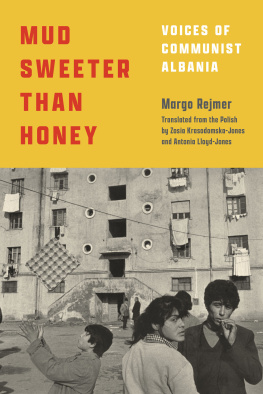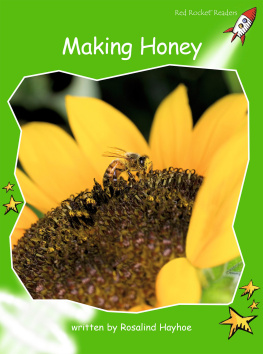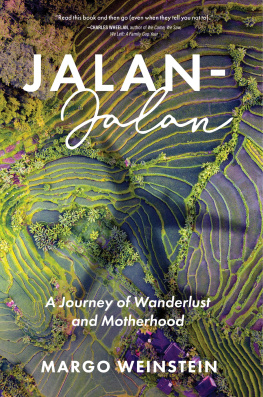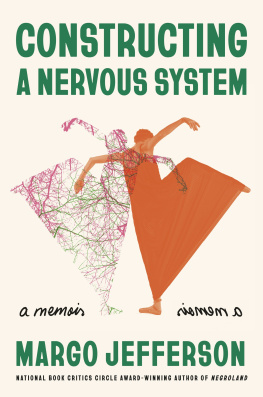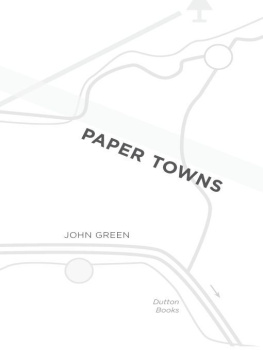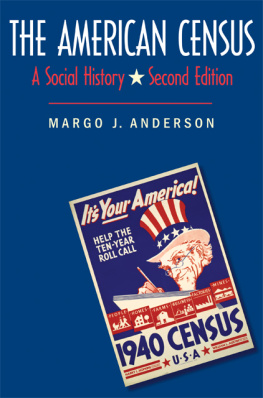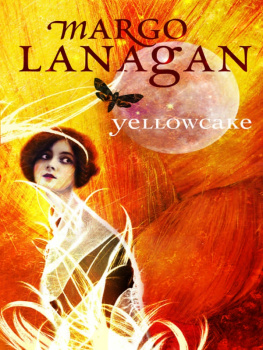Margo Rejmer - Mud Sweeter than Honey
Here you can read online Margo Rejmer - Mud Sweeter than Honey full text of the book (entire story) in english for free. Download pdf and epub, get meaning, cover and reviews about this ebook. year: 2021, publisher: Restless Books, genre: Politics. Description of the work, (preface) as well as reviews are available. Best literature library LitArk.com created for fans of good reading and offers a wide selection of genres:
Romance novel
Science fiction
Adventure
Detective
Science
History
Home and family
Prose
Art
Politics
Computer
Non-fiction
Religion
Business
Children
Humor
Choose a favorite category and find really read worthwhile books. Enjoy immersion in the world of imagination, feel the emotions of the characters or learn something new for yourself, make an fascinating discovery.
- Book:Mud Sweeter than Honey
- Author:
- Publisher:Restless Books
- Genre:
- Year:2021
- Rating:3 / 5
- Favourites:Add to favourites
- Your mark:
- 60
- 1
- 2
- 3
- 4
- 5
Mud Sweeter than Honey: summary, description and annotation
We offer to read an annotation, description, summary or preface (depends on what the author of the book "Mud Sweeter than Honey" wrote himself). If you haven't found the necessary information about the book — write in the comments, we will try to find it.
Mud Sweeter than Honey — read online for free the complete book (whole text) full work
Below is the text of the book, divided by pages. System saving the place of the last page read, allows you to conveniently read the book "Mud Sweeter than Honey" online for free, without having to search again every time where you left off. Put a bookmark, and you can go to the page where you finished reading at any time.
Font size:
Interval:
Bookmark:

Voices of Communist Albania
Margo Rejmer
Translated from the Polish by
Zosia Krasodomska-Jones and Antonia Lloyd-Jones
With an Introduction by Tony Barber
RESTLESS BOOKS
BROOKLYN, NEW YORK
Copyright 2018 Margo Rejmer
Translation copyright 2021 Zosia Krasodomska-Jones and Antonia Lloyd-Jones
Introduction copyright 2021 Tony Barber
Excerpt from Franz Kafkas The Trial translated by Jamie Bulloch
First published as Boto sodsze ni mid: Gosy komunistycznej Albanii by Wydawnictwo Czarne, Woowiec, Poland, 2018
All rights reserved.
No part of this book may be reproduced or transmitted without the prior written permission of the publisher.
First Restless Books hardcover edition November 2021
Hardcover ISBN: 9781632062833
Library of Congress Control Number: 2021937471
This book is supported in part by an award from the National Endowment for the Arts.

This publication has been supported by the POLAND Translation Program.

This work is published with support from the Sons of St. Marys Albanian Orthodox Church, Worcester, MA, and the Massachusetts Albanian American Society (MAASBESA).
Cover and text design by Sarah Schneider
Map Bill Donohoe
Cover photograph by Nikos Economopoulos/Magnum Photos
Photographs on pp. xviii and 226 by Nikos Economopoulos/Magnum Photos
Photographs on pp. 48, 108, and 176 by Ferdinando Scianna/Magnum Photos
Printed in the United States of America
1 3 5 7 9 10 8 6 4 2
Restless Books, Inc.
232 3rd Street, Suite A101
Brooklyn, NY 11215
www.restlessbooks.org
by Tony Barber
Where is mud sweeter than honey? In your own country.
ANDON ZAKO AJUPI, Where We Were Born, 1902
I love you, muddy Albanian soil,
Magic,
Sweet as honey,
Bitter as wormwood,
I love you
Ferociously,
Desperately,
Like a wolf loves the forest,
Like a wave loves a wave,
Like mud loves mud!
MITRUSH KUTELI, The Muddy Albanian Soil, 1944, translated by Robert Elsie

Albania (before the breakup of Yugoslavia)
1912 | Albania declares independence from the Ottoman Empire. |
1914 | Albania becomes a principality under Prince Wilhelm I of Albania, although Wilhelm flees in September 1914 and is head of state only nominally until 1925, when Albania becomes a republic. The First World War plunges Albania into political chaos, but in the aftermath it avoids being partitioned by neighboring countries, forms its own government, and expels foreign occupiers. |
1922 | Ahmet Zogu becomes prime minister. |
19258 | The First Albanian Republic. Ahmet Zogu becomes president. |
192839 | The Albanian Kingdom. Zogu becomes King Zog I. |
April 1939 | Italian invasion of Albania. King Zog flees to Greece. |
November 1941 | Creation of the Albanian Communist Party led by Enver Hoxha. |
September 1943 | German invasion and occupation of Albania. |
1944 | The communist National Liberation Army liberates Albania, fighting both the Germans and Balli Kombtar, a nationalist anti-communist paramilitary and political organization that had fought against the Italians and then sided with the Germans. A government led by Enver Hoxha is formed. |
1946 | Albania and Yugoslavia sign a treaty of friendship and cooperation. |
1948 | Albania breaks its ties with Yugoslavia. |
1951 | Albania and the USSR sign an agreement on mutual economic assistance. |
1954 | Mehmet Shehu becomes prime minister. Hoxha remains first secretary of the Communist Party. |
1961 | The SovietAlbanian split. Albania shifts closer to China. |
1967 | Hoxha declares Albania an atheist state. A campaign of religious oppression begins. |
19728 | The SinoAlbanian split. |
1980 | Hoxha chooses Ramiz Alia as his successor over Mehmet Shehu. |
1985 | Enver Hoxha dies. Ramiz Alia takes over as first secretary of the Party. |
1990 | The communist regime collapses. |
MarchApril 1991 | Elections are won by the Communist Party. Ramiz Alia is re-elected as president. |
MarchApril 1992 | The Democratic Party wins a majority in new elections. Sali Berisha becomes president; Alexander Meksi heads the first non-communist government. |
1997 | A financial crisis triggered by a collapse in fraudulent pyramid investment schemes leads to major riots, mass looting of weapons, and the resignation of the government. More than 2,000 people are killed in the violence that spreads nationwide. |
19972017 | Political unrest and instability continue. Power continues to shift between the Socialist Party and the Democratic Party. |
19989 | Refugees from the conflict in Kosovo flee to Albania. |
2006 | Albania and the European Union sign a Stabilization and Association Agreement. |
2009 | Albania joins NATO and applies for membership of the European Union. |
2014 | Albania becomes a candidate country for membership of the European Union. |
2021 | The general election held in April results in a clear win for the Socialist Party led by Edi Rama. |
BY TONY BARBER
AT THE STATE FUNERAL for Enver Hoxha in April 1985, the dictators body was buried next to the Mother Albania monument in Tiranas Cemetery of the Martyrs of the Nation. A red marble slab with the inscription ENVER HOXHA 19081985 was placed over the coffin. Ramiz Alia, Hoxhas successor as Communist Party leader, solemnly told the mourners: There should be no date of death on this marble stone. There is just one date for Enver Hoxha, his date of birth, and that is how it will always be, there is no death for him. Enver Hoxha is immortal.
Intended as a prophecyand doubtless as a warning to the Albanian peoplethat Hoxhas repressive apparatus of power would outlast the tyrant himself, Alias words proved mercifully off the mark. Less than six years after the funeral rites, a crowd tore down the bronze statue of Hoxha that towered over Skanderbeg Square, Tiranas main plaza. In May 1992, Hoxhas remains were transferred from their grand resting place to Tiranas plain municipal cemetery. A little later than other countries in east-central Europe, but not a moment too soon for most Albanians, the nation was embarking on a rocky journey to political pluralism, civic freedoms, a market-based economy, and integration with the outside world that continues to this day.
Font size:
Interval:
Bookmark:
Similar books «Mud Sweeter than Honey»
Look at similar books to Mud Sweeter than Honey. We have selected literature similar in name and meaning in the hope of providing readers with more options to find new, interesting, not yet read works.
Discussion, reviews of the book Mud Sweeter than Honey and just readers' own opinions. Leave your comments, write what you think about the work, its meaning or the main characters. Specify what exactly you liked and what you didn't like, and why you think so.

